THROWBACK 2020 - THE MAN OF THE MOMENT HUMAYUN SAEED
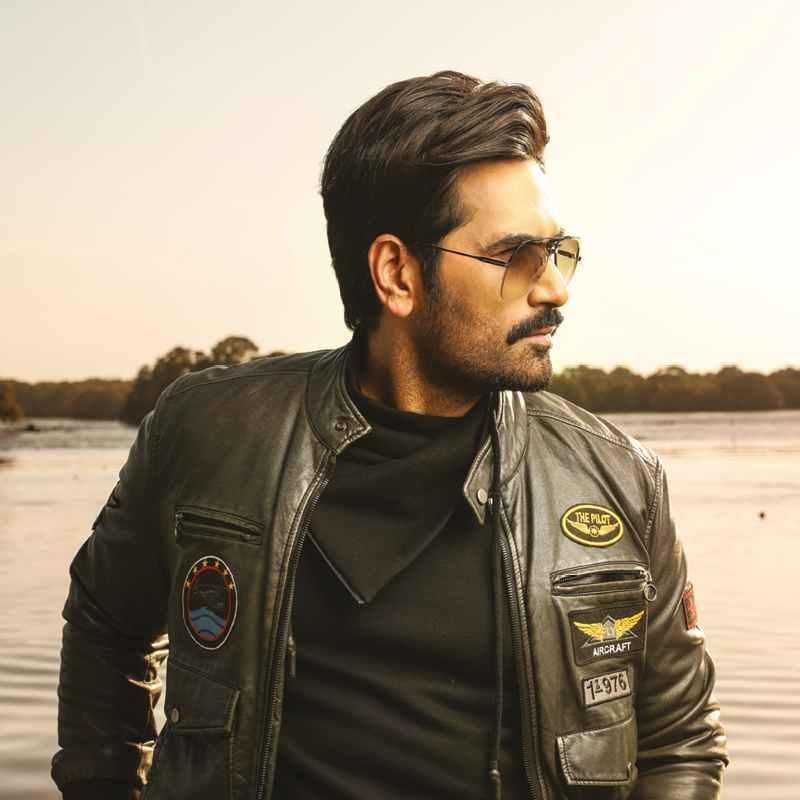
He Is A Star But He Is Also The Most Heartwarmingly Humble Super Achiever You've Ever Met
Anywhere he goes he can gather a following in minutes! I last saw Humayun Saeed in December in Oslo. He flew into the city for 24-hours to attend the IPPA Awards for Pakistani film and TV and besides having the entire audience of the show responding to his every movement, he remained simply himself – no arrogance, no weighty showing off! Similarly, Humayun Saeed arrived at the HELLO! photo shoot on the dot of time, made absolutely no heavy demands of our team and wrapped up his shots within the given time. We were ecstatic – remembering many of the times we’ve encountered high drama in real life and real time from others in the industry. I think it will invaluable for younger actors – and people who have recently entered this domain – to take a leaf out Humayun’s book. Fans and people you work with are those you must keep happy! Also be humble and stay humble. I had a lovely conversation with Humayun recorded below.
What kind of roles do you enjoy doing now at this evolved stage in your career?
There are a lot of characters that I have always wanted to explore since the start of my career. Some I have managed to enact, while there are still many that I am yet to take on. I do try to pick roles that are different from the previous ones and I hope I will get opportunities to do so in the future as well.
What acting methods do you try to employ? Are you more a method actor or do you believe in avant grade expressionism?
I wouldn’t say I am a method actor but I do tend to observe people closely and then incorporate my observations in my characters. When I take on a role, I ask myself if I have met such a person in real life and more often than not, I have, so I try to take elements of their personality to create a character and then enact it as naturally as possible. If you could call this a method, then maybe I am a method actor.
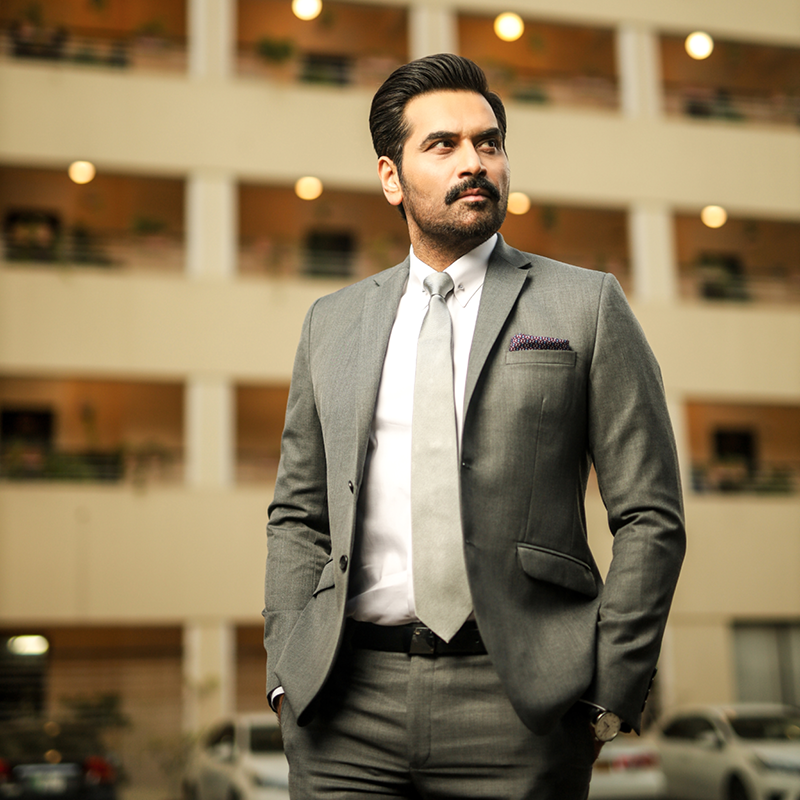
Are there any roles you may have turned down but in retrospect wish you hadn’t?
None.
Do you have a favourite director that you enjoy working with?
There quite a few, actually; Mehreen Jabbar, Marina Khan, Shahid Shafat, Babar Javed and of course Nadeem Baig. I have learnt so much from all of them. Mehreen, for example, helped me explore the art of natural acting; Marina let me connect with the comedic traits in my personality. I played a negative character with Shahid Shafat and thoroughly enjoyed that experience. Nadeem is, of course, an amalgamation of all of them. He has the ability to make me do my best – I have worked only with him these past five years, so we share a special bond.
What legacy do you think you will leave behind for younger actors looking to make it in an industry that has changed so much during your time?
I am still learning myself and that’s a continuous process. You never stop learning and neither does the industry stop evolving, so the key is to always believe you know nothing. One strives to be better with every project, so I really don’t know what legacy I will leave behind, but my wish is to create content or be part of projects that are at par with any of the international shows or movies that we all enjoy watching so much. My advice to young people is also to never think they know it all. Be cautious especially if you see success early in your career; and I suggest, always stay keen to explore.
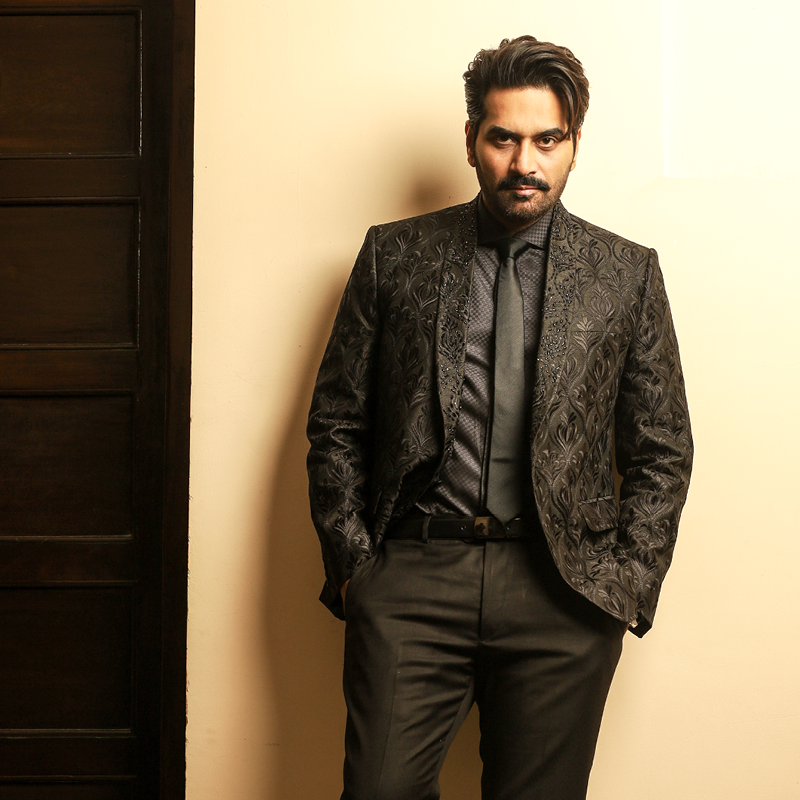
What do you think the film and television industry needs to do to keep growing?
You need take risks in order to grow. Come out of your shell, pick innovative subjects. One can’t stick to just one genre. And I say that about myself too, I can’t only be making romantic or comedy films/dramas forever. Meray Paas Tum Ho is an example, it broke so many barriers, by engaging a large male audience, for instance.
Who would you consider your earliest mentor/s in the Pakistani film and television industry?
There are certainly a lot of people I take inspiration from. As a film producer Sajjad Gul, definitely. I have always looked up to him and have been impressed with his filmmaking process. Sultana Siddiqui and Ghazanfar Ali have played an integral part in revolutionising the television industry.
Do you agree that film and television can positively impact society? How far are actors responsible in that regard and where do you draw the line between being true to your art and being true to the society you live in?
I believe actors have greater responsibility off screen. On screen, they portray roles or characters that they have been assigned, that may or may not be closer to how they are in real life. But what celebrities do off screen does have a stronger impact on audiences, especially if they have a large fan following. How they behave in public is significant because people see them as role models and want to emulate them; their wardrobe, even their hairstyles so with so many eyes on you, there’s really very little room for mistakes. TV and film, of course, do have the ability to make a positive impact on society. There’s a lesson to be learnt in every story told, and more often than not, the viewers are smart enough to decipher it. At the end of the day though, film and TV are meant to entertain and if a project manages to achieve just that, then that’s a win.
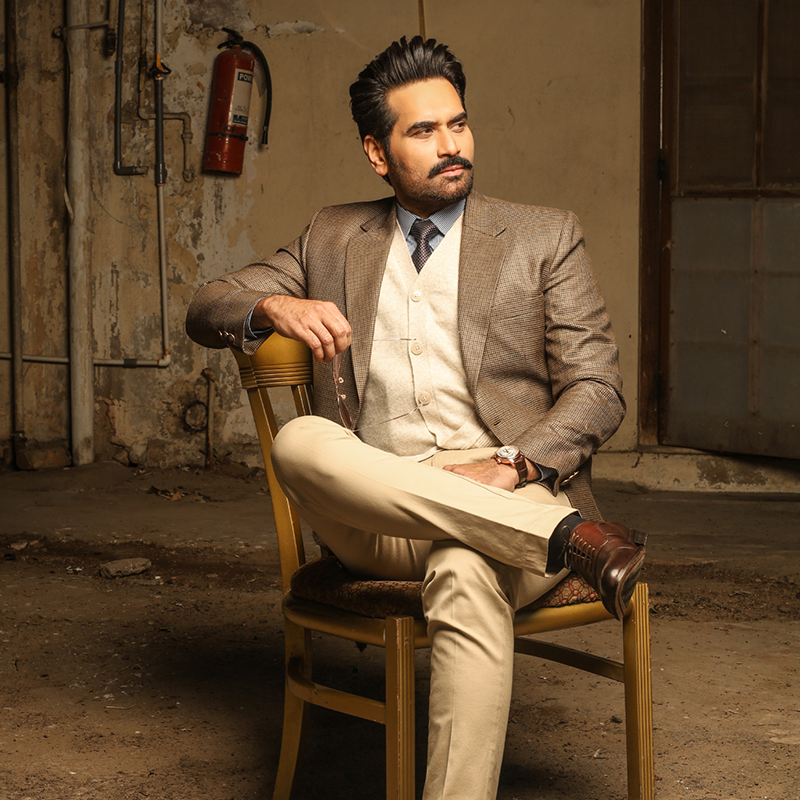
If there was any one thing you could change in your life, what would it be?
I think I am a bit lazy and quite careless – I would want to be more disciplined.
If there was any one thing you could change in the world what would it be?
Somehow increase the patience level in people.
What was the best part of acting in 2019/20’s most trending drama Mere Pass Tum Ho?
The fact that I got to play Danish. It’s a character that I had been wanting to take on for a long time and I am glad it worked out the way it has.
Did you find the story and theme problematic at any level?
I don’t think so, because whatever dialogues have been said, were scripted in context. The context being the lives of a husband and a wife and how their world was impacted by the actions of the wife. There were certain traits in Danish, Mehwish or in Shehwar or the other characters that you may like, or you may not like. And that’s fine but you have got to realise these are characters within the realm of a particular script and are in no way a depiction of the entire society.
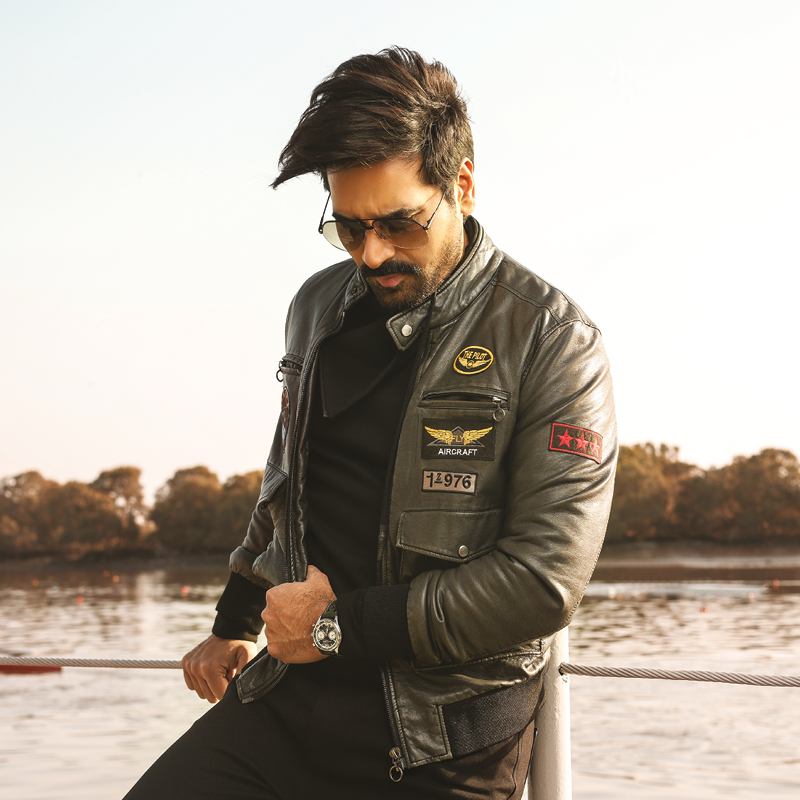
What does feminism mean to you? Who are your female role models?
Feminism for me is treating women as human beings who deserve equality and respect. There are two women without whom I wouldn’t be the person I am and without whom I wouldn’t have been able to reach where I have got to today – my mother and my wife.
How did you feel about audience reactions at the end of Mere Pass Tum Ho?
The reactions were expected. We knew people would be upset about Danish dying but for us it was justified because he couldn’t have moved on or have married someone else as he had given all his love to Mehwish.
What is next in the pipeline for Humayun Saeed besides London Nahin Jaungi?
It’s London Nahi Jaunga! Also working on three films Rung, Naram Garam and Love Guru; drama serial Samjhota Express and another serial in the works.
Interview: Amna R. Ali
Photography: Haseeb Siddiqui
Stylist: Ehtesham Ansari
Eyewear & Watches: Lifestyle Collections
Shoes: Mocciani
Hair & Makeup: Nadeem William from A-List Salon
PR Coordination: Nuzaira Imam
Location: Beach Luxury Hotel
